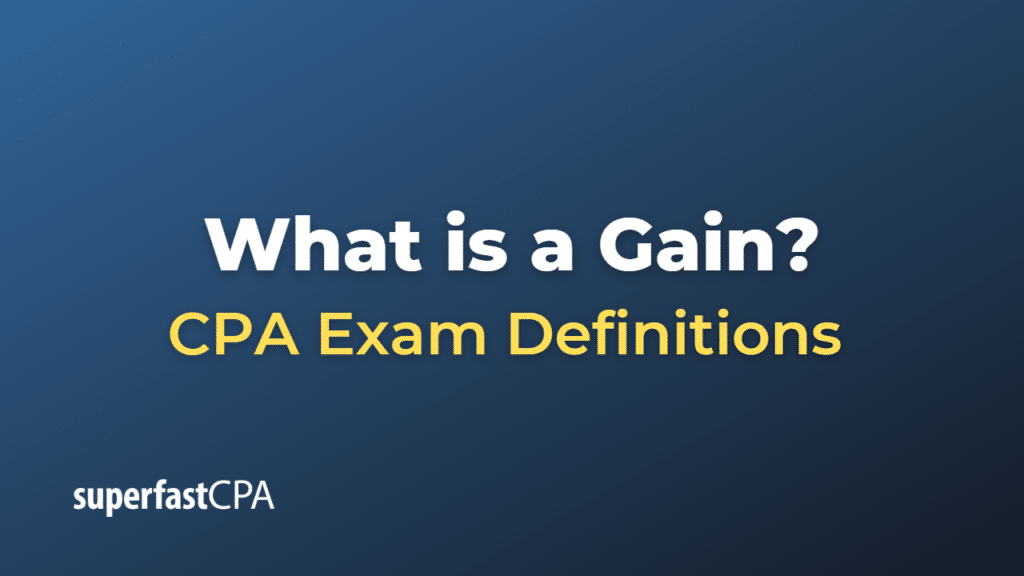Gain
In financial terms, a gain typically refers to the positive difference between the selling price of an asset and its original purchase price, or its book value. It’s essentially the profit realized on the sale of a non-inventory asset. Non-inventory assets include stocks, bonds, equipment, buildings, and other capital assets.
A gain is the opposite of a loss, which occurs when an asset sells for less than its original purchase price or book value. Gains increase the owner’s equity or net worth.
For example, if you purchased a stock for $20 and later sold it for $30, you would have a gain of $10. Similarly, if a company bought a piece of machinery for $50,000 and sold it years later for $60,000, it would record a gain of $10,000.
In accounting, gains often appear on an income statement separately from regular business income. This is because gains are usually from one-time sales, rather than recurring business operations. For instance, a company might report “Gain on Sale of Equipment” as a separate line item on its income statement.
Gains can also refer to increases in value even if the asset hasn’t been sold yet. For instance, if the market price of a stock you own goes up, you have an unrealized gain. But you only realize the gain if you sell the stock at the higher price.
Example of a Gain
Suppose you purchased 100 shares of Company XYZ’s stock for $10 per share. The total cost of this investment was $1,000 (100 shares * $10/share).
After a few years, the price of Company XYZ’s stock has risen to $15 per share. You decide to sell all of your shares at this price. The total amount you receive from the sale is $1,500 (100 shares * $15/share).
The gain on this transaction is calculated as the sale proceeds minus the original cost:
Gain = Sale proceeds – Original cost Gain = $1,500 – $1,000 Gain = $500
So, in this case, you’ve realized a gain of $500 on your investment in Company XYZ’s stock. This gain would be subject to capital gains tax, assuming it was held in a taxable account.
Remember, a gain only becomes realized when the asset is sold. If the stock price went up to $15 but you didn’t sell, you’d have an unrealized gain. You wouldn’t owe taxes on an unrealized gain, but you also wouldn’t be able to use it to invest in something else or spend on your needs or wants.













